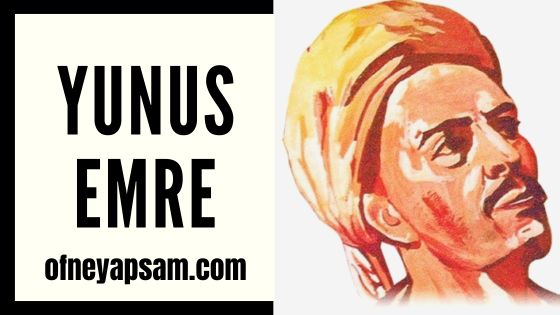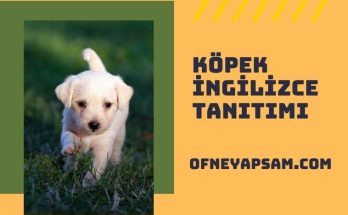13. yüzyılda yaşamış ve Türkçe şiirin öncüsü halk şairimiz Yunus Emre’nin İngilizce ve Türkçe hayatı.
Yunus Emre İngilizce ve Türkçe Hayatı
One of the greatest poets of Turkish folk literature.
Türk halk edebiyatının en büyük şairlerinden biri.
Most sources state that he was born in 1238 to a Turkish family who migrated to Anatolia from Central Asia.
Kaynakların çoğu, 1238’de Orta Asya’dan Anadolu’ya göç eden bir Türk ailesinde doğduğunu belirtir.
Yunus Emre was one of the prominent scholars in the history of Islam.
Yunus Emre, İslam tarihinde önde gelen alimlerden biriydi.
Yunus Emre studied at a madrasah where he learned Arabic and Persian.
Yunus Emre, Arapça ve Farsça öğrendiği bir medresede çalıştı.
He became interested in Iranian and Greek mythology and analyzed the history of mysticism.
İran ve Yunan mitolojisine ilgi duydu ve tasavvuf tarihini analiz etti.
His belief, which is known as Vahdet-i Vücud (unity of existence), explores the essence of the Koran, trying to comprehend and explain the secrets of the ‘one and only creator’ to the community.
Vahdet-i Vücud (varoluş birliği) olarak bilinen inancı, Kur’an’ın özünü araştırıyor ve “tek ve tek yaratıcının” sırrını topluma kavuşturmaya ve açıklamaya çalışıyor.
Yunus, in most of his poems declares his great love for the God.
Yunus, şiirlerinin çoğunda Tanrı’ya olan sevgisini ilan eder.
Yunus Emre, who was the pioneer of mysticism in Anatolia and Turkish poetry, explained mystical concepts by using a simple yet lucid and beautiful language addressing ordinary people.
Anadolu ve Türk şiirinde tasavvufun öncüsü olan Yunus Emre, sıradan insanlara hitap eden basit ama net ve güzel bir dil kullanarak mistik kavramları açıkladı.
UNESCO named Yunus Emre one of the main cultural figures of world, and dedicated 1991 as “The International Yunus Emre Year”.
UNESCO, Yunus Emre’yi dünyanın en önemli kültürel isimlerinden biri olarak seçti ve 1991 yılına “Uluslararası Yunus Emre Yılı” adını verdi.



